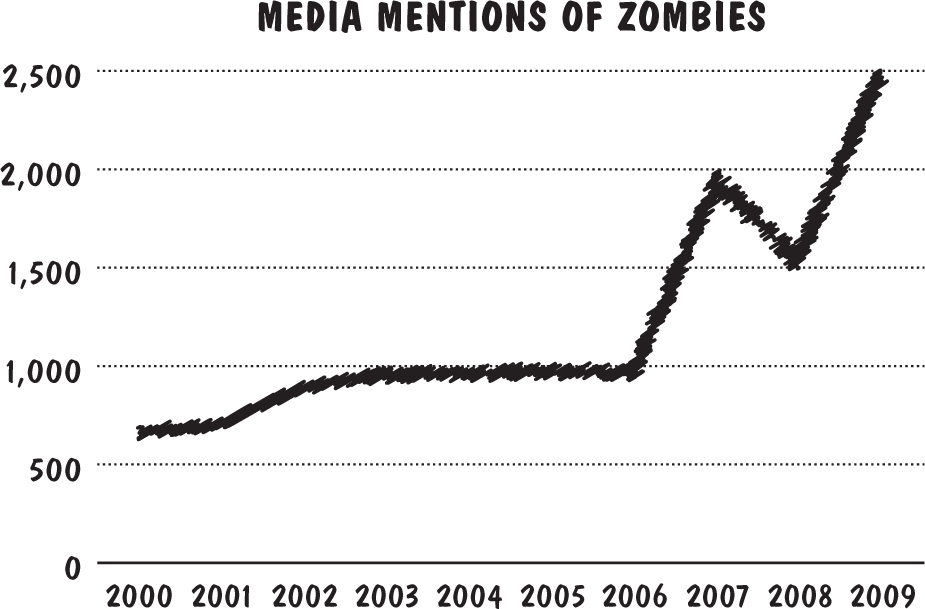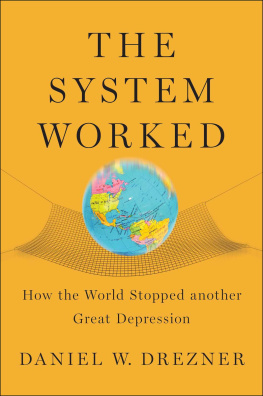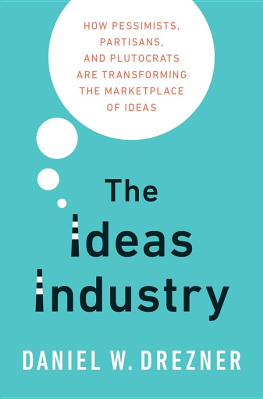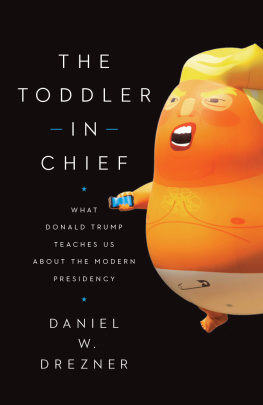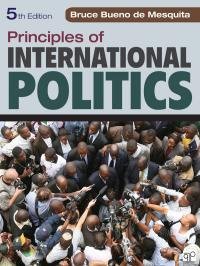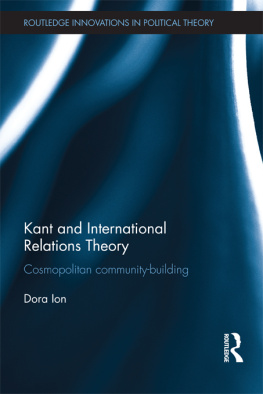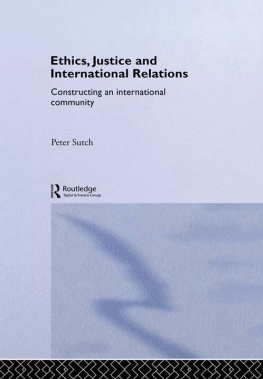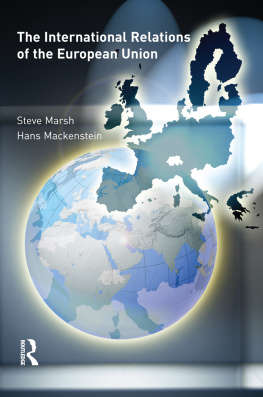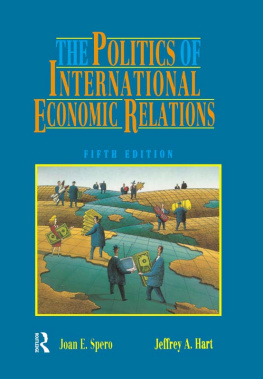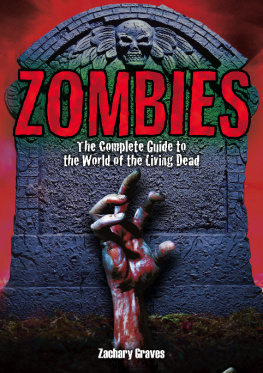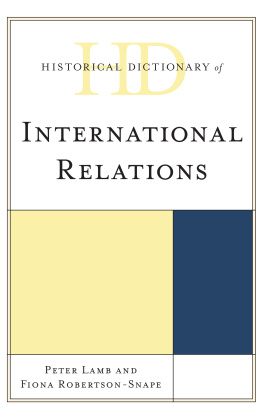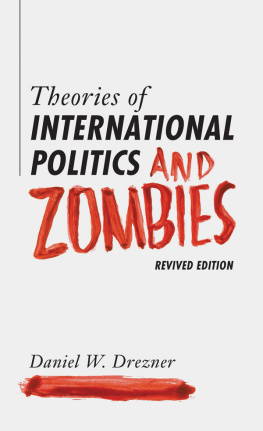THEORIES OF INTERNATIONAL POLITICS AND ZOMBIES
THEORIES OF INTERNATIONAL POLITICS AND ZOMBIES
APOCALYPSE EDITION
DANIEL W. DREZNER
PRINCETON UNIVERSITY PRESS
PRINCETON AND OXFORD
Copyright 2022 by Princeton University Press
Published by Princeton University Press, 41 William Street, Princeton, New Jersey 08540
In the United Kingdom: Princeton University Press, 99 Banbury Road, Oxford OX2 6JX
press.princeton.edu
All Rights Reserved
Library of Congress Cataloging-in-Publication Data
Names: Drezner, Daniel W., author.
Title: Theories of international politics and zombies / Daniel W. Drezner.
Description: Apocalypse edition. | Princeton, New Jersey : Princeton University Press, 2022. | Includes bibliographical references and index.
Identifiers: LCCN 2021049274 (print) | LCCN 2021049275 (ebook) | ISBN 9780691223513 (paperback) | ISBN 9780691223520 (ebook)
Subjects: LCSH: International relationsPhilosophy. | Zombies. | BISAC: POLITICAL SCIENCE / International Relations / General | POLITICAL SCIENCE / History & Theory
Classification: LCC JZ1305 .D74 2022 (print) | LCC JZ1305 (ebook) | DDC 327.101dc23
LC record available at https://lccn.loc.gov/2021049274
LC ebook record available at https://lccn.loc.gov/2021049275
Version 1.0
British Library Cataloging-in-Publication Data is available
Editorial: Bridget Flannery-McCoy, Alena Chekanov
Production Editorial: Terri OPrey
Text Design: Wanda Espaa
Jacket/Cover Design: Karl Spurzem
Production: Erin Suydam
For my son Sam, who thought this was way cooler than my other books; and my daughter Lauren, for reassuring me that there are no zombies in this land.
CONTENTS
- ix
PREFACE
A long time ago, on a cross-country drive, I stopped to visit Graceland. By the time my tour hit the Jungle Room, it was obvious that the thirty-odd people walking through Elvis Presleys mansion fell into two groups. The first contingent was thoroughly, utterly sincere in their devotion to all things Elvis. They were hardcore fans, and Graceland was their Mecca, their Jerusalem, and their Rome. Many of them sounded convinced that the King was still walking the earth. They gasped when they saw the jumpsuit collection, bedazzled by its grandeur.
The second group of tourists was equally delighted to be at Graceland, but for a different reason. These people took great pleasure in the kitschy nature of all things Elvis. To them, a mansion that preserved the aesthetics of green shag carpeting and mirrored walls was both funny and tacky. They too gasped when they saw the jumpsuit collection, bedazzled by how ridiculous they thought it was.
As we ambled along, the sheer professionalism of our tour guide struck me. Her task was not an easy one. She had to provide a veritable font of Elvis knowledge to all the intense devotees. At the same time, she also had to acknowledge the absurdist nature of the experience for the rest of the tour group.
With subtle changes in her facial expressions and slight adjustments in her tone of voice, our guide accomplished her task brilliantly. At no point in time did she diminish Elvis in the eyes of his devout followers. Still, I believe all left Graceland that day thoroughly satisfied with their visit.
Think of this book as my tour of a different kind of Graceland, only with a lot more footnotes. Ohand zombies.
THEORIES OF INTERNATIONAL POLITICS AND ZOMBIES
Thus said the Lord God unto these bones: Behold, I will cause breath to enter into you, and ye shall live. And I will lay sinews upon you, and bring up flesh upon you, and cover you with skin, and put breath in you, and ye shall live; and ye shall know that I am the Lord. So I prophesied as I was commanded; and as I prophesied, there was a noise, and behold a commotion, and the bones came together, bone to its bone. And I beheld, and, lo, there were sinews upon them, and flesh came up, and skin covered them above; but there was no breath in them.
EZEKIEL 37:58
INTRODUCTION TO THE UNDEAD
There are many natural sources of fear in world politicsterrorist attacks, lethal pandemics, natural disasters, climate change, financial panic, nuclear proliferation, ethnic conflict, global cyberwarfare, political polarization, great power competition, and so forth. Surveying the cultural zeitgeist, however, it is striking how an unnatural problem has become one of the fastest-growing concerns in international relations. I speak, of course, of zombies.
Whether they are called ghouls, deadites, rotters, walkers, stenches, hungries, deadheads, post-humans, the mobile deceased, or the differently animated, the specter of the living dead represents an important puzzle to scholars of international relations and the theories we use to understand the world. What would different theories of international politics predict would happen if the dead began to rise from the grave and feast upon the living? How validor how rottenare these predictions?
Serious readers might dismiss these questions as fanciful, but concerns about flesh-eating ghouls are manifestly evident in popular culture. Whether one looks at films, songs, games, or books, the genre is clearly on the rise. As
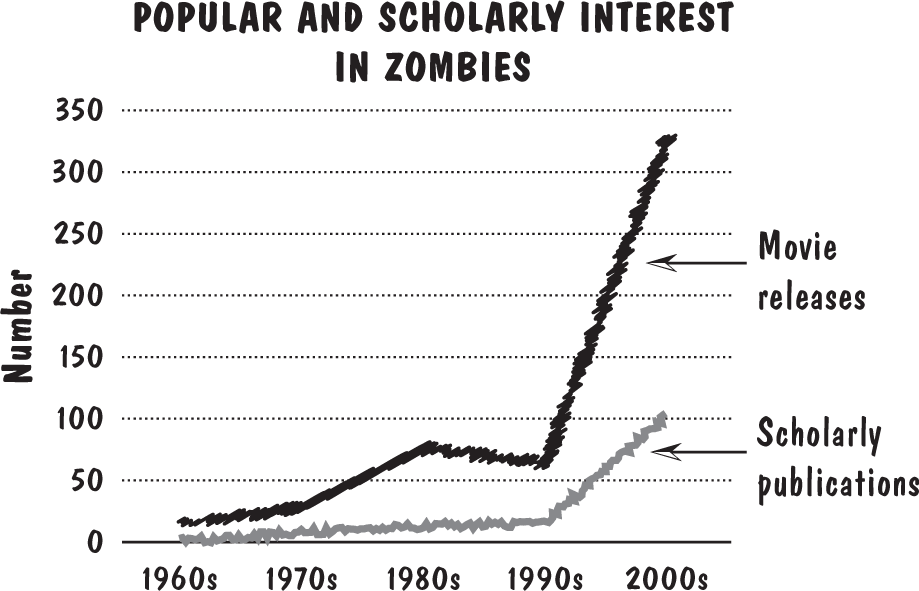
Figure 1. Popular and scholarly interest in zombies.
Sources: Wikipedia, Web of Science.
Nor is this interest limited to celluloid. A series of zombie video games, including the Resident Evil and Left 4 Dead franchises, served as a precursor for the renaissance of zombie cinema. These have been followed up by even more video games, such as The Last of Us. The undead have spread to television in recent years, including the CWs iZombie (201519), Syfys Z Nation (201418), and Netflixs Black Summer (201921). Towering over the zombie television landscape is AMCs ratings powerhouse The Walking Dead (201022), which in 2013 beat all other shows in its time slot in the ratings. While that show has ended it has spawned multiple spin-offs, including Fear theWalking Dead, The Walking Dead: World Beyond, and perhaps in the future 2 Walking 2 Dead and The Walking Dead: Tokyo Drift.
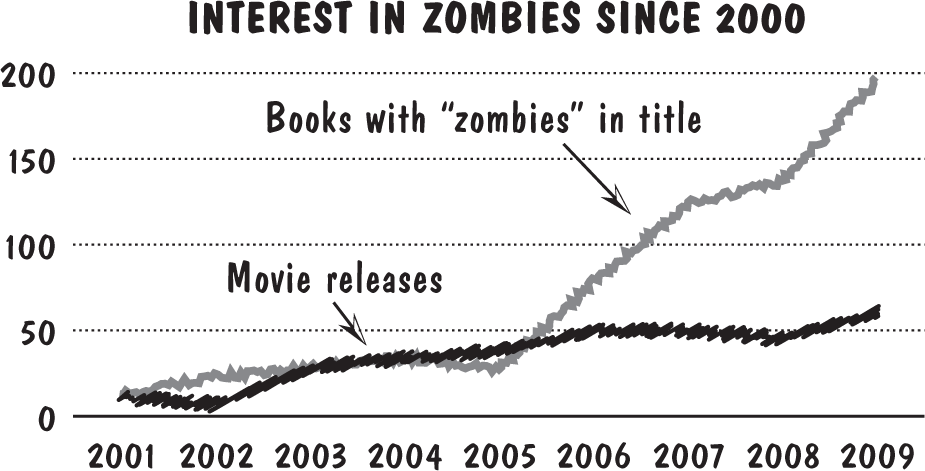
Figure 2. Interest in zombies since 2000.
Sources: Amazon.com, Wikipedia.
Zombies have also seeped onto the written page. The popular literature ranges from how-to survival manuals,). Clearly the living dead have lurched from marginal to mainstream.
One could dismiss the zombie trend as merely feeding a mass public that craves the strange and bizarre. Such an explanation would be only skin-deep. Popular culture often provides a window into the subliminal or unstated fears of citizens, and zombies are no exception. Some cultural commentators argue that the September 11, 2001, terrorist attacks were a primary cause for renewed interest in the living dead, and the numbers appear to back up this assertion (see
